
Overview
The Transportation Industry encompasses the various sectors involved in the movement of goods and people from one location to another. It includes modes such as road, rail, air, sea, and pipeline transportation, each playing a vital role in the global economy. In the road transportation sector, vehicles such as trucks, buses, and automobiles are utilized for the movement of passengers and freight over land. This sector involves aspects like logistics, fleet management, and infrastructure development. Rail transportation involves the use of trains and railways for the efficient movement of goods and passengers across long distances. Rail transportation is known for its cost-effectiveness and sustainability compared to other modes, particularly for freight movement. Air transportation is crucial for both domestic and international travel, connecting distant locations in a relatively short period. Airlines operate a fleet of aircraft, ranging from small regional jets to large commercial airliners, facilitating rapid transportation of passengers and cargo. Sea transportation involves the movement of goods and passengers via ships and vessels across oceans and seas. It is a vital mode for international trade, enabling the transportation of bulk commodities and large cargoes. Pipeline transportation involves the use of pipelines to transport liquids, gases, and solids over long distances. Pipelines are commonly used for transporting petroleum products, natural gas, and various chemicals.
Depending on specific features and functions, GAO Tek’s Other Material Analyzers are sometimes referred to as non-conventional material analyzers, alternative substance analyzers, diverse material analyzers, miscellaneous substance analyzers, unconventional material analyzers, varied substance analyzers, different material analyzers, assorted substance analyzers, heterogeneous material analyzers, and various substance analyzers.
GAO Tek’s Other Material Analyzers have the following applications in the transportation industry:
- Composite Material Analysis: Utilizing GAO Tek’s material analyzers to assess the composition and structural integrity of composite materials used in aerospace components, such as carbon fiber reinforced polymers (CFRPs) in aircraft fuselages and wings.
- Corrosion Monitoring: Employing GAO’s material analyzers to detect and analyze corrosion levels in metal components of vehicles, bridges, and maritime vessels, facilitating preventive maintenance and extending service life.
- Quality Assurance in Automotive Manufacturing: Integrating GAO Tek’s material analyzers into the automotive manufacturing process to ensure the quality and consistency of materials used in vehicle construction, such as steel alloys for chassis and aluminum alloys for body panels.
- Non-Destructive Testing (NDT) in Railways: Implementing GAO’s material analyzers for non-destructive testing of railway tracks, wheels, and components to identify defects, fatigue cracks, and material degradation, enhancing safety and reliability in rail transportation.
- Fuel Analysis for Aviation Safety: Conducting fuel analysis using GAO Tek’s material analyzers to ensure the purity, composition, and compliance of aviation fuels, minimizing the risk of engine malfunctions and ensuring safe flights.
- Environmental Monitoring for Marine Transportation: Utilizing GAO’s material analyzers to assess water quality and analyze pollutants in ports and waterways, supporting environmental compliance and sustainability efforts in maritime transportation.
- Road Surface Evaluation: Employing GAO Tek’s material analyzers to analyze road surface materials and pavement conditions, facilitating predictive maintenance and infrastructure improvements to enhance road safety and performance.
- Cargo Inspection and Security Screening: Integrating GAO’s material analyzers into cargo inspection systems at transportation hubs and border crossings to identify suspicious or hazardous materials, enhancing security measures and preventing illicit trafficking.
- Weathering and Degradation Analysis: Using GAO Tek’s material analyzers to study the effects of weathering, UV radiation, and environmental factors on transportation infrastructure materials, enabling proactive maintenance and durability enhancements.
- Recycling and Sustainability Initiatives: Employing GAO’s material analyzers to identify and sort recyclable materials from end-of-life vehicles, aircraft, and infrastructure components, supporting circular economy initiatives and reducing environmental impact in the transportation industry
More information on other material analyzers and their applications in other industries can be found on
This category page lists related products
Systems in the Transportation Industry Utilizing Other Material Analyzers
Here are some popular systems in the transportation industry using other material analyzers:
Composite Material Inspection System:
- Composite Analysis Toolkit (CAT) : CAT is specifically designed for analyzing composite materials commonly used in aerospace and automotive industries. It offers features for identifying material composition, detecting defects, and predicting mechanical properties.
- Composite Lab : Composite Lab provides advanced tools for simulating and analyzing the behavior of composite structures under various loading conditions. It integrates material analysis data to optimize design and manufacturing processes.
- Material Science Workbench (MSW) : MSW is a comprehensive platform for material analysis and characterization. It includes modules for processing spectroscopic data, conducting finite element analysis (FEA), and correlating material properties with performance.
Corrosion Monitoring and Management System:
- Corrosion Assessment Manager (CAM) : CAM enables real-time monitoring of corrosion levels in transportation infrastructure, such as bridges, pipelines, and maritime vessels. It integrates data from material analyzers to assess corrosion rates, predict degradation, and schedule maintenance activities.
- Corr Data Pro – Corr Data Pro is a database : driven software for managing corrosion data and conducting statistical analysis. It facilitates trend analysis, risk assessment, and decision-making for corrosion control strategies.
- Corrosion Mapping Software (CMS) : CMS provides visualization tools for mapping and analyzing corrosion patterns on metal surfaces. It supports data integration from various material analyzers and imaging techniques for comprehensive corrosion assessment.
Quality Assurance and Control System for Automotive Manufacturing:
- Manufacturing Execution System (MES) : MES software integrates material analysis results with production processes in automotive manufacturing plants. It enables real-time quality control, traceability, and compliance management throughout the manufacturing workflow.
- Statistical Process Control (SPC) Software : SPC software monitors manufacturing variables and material properties to ensure consistency and compliance with quality standards. It provides tools for process optimization, defect detection, and root cause analysis.
- Product Lifecycle Management (PLM) Software : PLM software facilitates collaboration and data management across the automotive supply chain. It includes modules for managing material specifications, conducting virtual testing, and tracking product performance over its lifecycle.
Non-Destructive Testing (NDT) System for Railway Maintenance:
- Rail Inspection Software (RIS) : RIS is tailored for managing NDT data from material analyzers used in railway track inspection. It automates data analysis, generates inspection reports, and supports predictive maintenance planning.
- Track Maintenance Management System (TMMS) : TMMS integrates material analysis data with asset management systems for railway infrastructure. It provides tools for prioritizing maintenance activities, optimizing track usage, and minimizing downtime.
- Ultrasonic Testing Analysis Software (UTAS): UTAS is specialized software for analyzing ultrasonic inspection data obtained from rail flaw detection systems. It includes algorithms for defect sizing, classification, and trend analysis for rail maintenance.
Fuel Quality Monitoring and Management System for Aviation Industry:
- Aviation Fuel Management System (AFMS) : AFMS integrates material analysis data with fuel inventory and distribution systems at airports. It tracks fuel quality parameters, monitors contamination levels, and ensures compliance with aviation fuel standards.
- Fuel Logistics Optimization Software (FLOS) : FLOS optimizes fuel procurement, storage, and distribution processes based on material analysis results. It includes modules for demand forecasting, inventory management, and supply chain optimization.
- Fuel Contamination Analysis Tool (FCAT) : FCAT provides algorithms for analyzing fuel spectroscopy data and detecting contaminants such as water, particulates, and microbial growth. It supports proactive maintenance and risk mitigation in aviation fuel systems.
GAO Tek’s targeted markets are North America, particularly the U.S., and Canada.
Complying with Government Regulations
GAO Tek’s other material analyzers comply or help our customers comply with the U.S. government regulations such as:
- ASTM
- FAA AC
- DOT CFR
- EPA Method
- MIL-STD
- NIST SP
GAO Tek’s other material analyzers comply or help our clients comply with Canadian regulations such as:
- CAN/CGSB
- CSA W
- TC E
- ISO/IEC
- CSA Z
- SAE AS
Case Studies of Other Material Analyzers in the Transportation Industry
Other material analyzers are sometimes called non-conventional material analyzers, alternative substance analyzers, diverse material analyzers, miscellaneous substance analyzers, unconventional material analyzers, varied substance analyzers, different material analyzers, assorted substance analyzers, heterogeneous material analyzers, and various substance analyzers.
Here are some practical examples of using other material analyzers in the transportation industry:
In the Northeast Region of the U.S., transportation authorities are leveraging advanced material analyzers to maintain and enhance the region’s infrastructure network. In New York City, the Department of Transportation (DOT) employed handheld X-ray fluorescence (XRF) analyzers to assess the condition of bridge materials across the city’s extensive infrastructure network. This proactive approach allowed engineers to identify corrosion, fatigue, and material degradation in critical bridge components, prioritizing maintenance efforts for safer and more reliable transportation routes.
In Boston, Massachusetts, a major railway company utilized advanced ultrasonic testing (UT) equipment to inspect railway tracks for defects and structural anomalies. By deploying UT probes emitting high-frequency sound waves into the rail tracks, technicians could detect internal flaws such as cracks, voids, and rail head wear. Regular UT inspections along key rail corridors connecting major cities like Boston, New York, and Philadelphia ensured the integrity and safety of the transportation infrastructure for both passenger and freight rail services.
In the Midwest Region of the U.S., material analyzers play a crucial role in maintaining the integrity and efficiency of transportation systems. In Chicago, Illinois, the Department of Transportation (DOT) utilized infrared spectroscopy (IR) analyzers to examine the composition of asphalt pavement materials used in road construction and maintenance. This analysis allowed engineers to assess pavement quality, durability, and aging characteristics, enabling optimized design and maintenance strategies to prolong road surface lifespan and enhance safety for motorists.
In Detroit, Michigan, a freight railroad company employed magnetic particle testing (MPT) equipment to inspect railcar components for defects and material integrity. By conducting routine MPT inspections at rail yards and maintenance facilities, the company ensured the reliability and safety of freight transportation services across the Midwest Region. This proactive approach minimized the risk of derailments and operational disruptions, contributing to efficient freight movement and economic growth in the region.
In the South Region of the U.S., material analyzers are instrumental in ensuring the safety and reliability of transportation systems. In Houston, Texas, a maritime shipping company utilized corrosion monitoring systems equipped with electrochemical impedance spectroscopy (EIS) analyzers to assess the condition of steel structures on cargo vessels at the Port of Houston. By analyzing corrosion rates and coating integrity, the company implemented timely maintenance measures, ensuring safe and compliant maritime transportation in the Gulf of Mexico.
In Baton Rouge, Louisiana, an oil and gas company utilized non-destructive testing (NDT) equipment, including magnetic flux leakage (MFL) analyzers, to inspect pipeline materials for defects and integrity issues. This proactive approach to pipeline integrity management ensured the safe and reliable transportation of oil and gas products across the South Region, supporting energy supply chains and industrial operations.
In the West Region of the U.S., material analyzers are integral to ensuring the quality and safety of transportation infrastructure. In Los Angeles, California, a state transportation department utilized portable X-ray fluorescence (XRF) analyzers to assess the quality of concrete used in highway construction projects. By analyzing concrete samples for elemental composition, engineers ensured compliance with strength and durability standards, promoting safe and sustainable transportation routes.
In Seattle, Washington, a railway company employed eddy current testing (ECT) equipment to inspect rail track materials for defects and wear. Conducting routine ECT inspections along key rail corridors allowed maintenance crews to detect surface cracks and material degradation in rails and components, ensuring the reliability of passenger and freight rail services. These proactive approaches to material analysis support the efficient and safe transportation of goods and people across the West Region.
In Canada, material analyzers play a critical role in maintaining the integrity and safety of transportation infrastructure. In Toronto, Ontario, the Ministry of Transportation utilized handheld X-ray fluorescence (XRF) analyzers to inspect the steel components of bridges across the province. By analyzing the chemical composition of bridge steel, engineers could identify corrosion and material degradation, facilitating timely maintenance efforts to ensure structural integrity and safe transportation routes.
In Calgary, Alberta, a major railway company employed ultrasonic testing (UT) equipment to assess the condition of rail track materials along its network. UT probes enabled maintenance crews to detect internal flaws such as cracks and defects in rails and components, allowing for proactive repairs to prevent derailments. These initiatives underscore the importance of material analysis in supporting the reliable and efficient movement of goods and people across Canada’s transportation network.
GAO RFID Inc. RFID Hardware, a sister company of GAO Tek Inc., is ranked as a top 10 RFID supplier in the world. Its RFID, BLE, and IoT products have also been widely used in the transportation industry.
Supply Chain and Logistics Industry
Transportation Equipment Manufacturing Industry
Use of Other Material Analyzers with Leading Software and Cloud Services in the Transportation Industry
GAO Tek has used or has facilitated its customers to use GAO’s other material analyzers with some of the leading software and cloud services in their applications. Examples of such leading software and cloud services include:
- Material Analysis Software Suite
- Analytical Cloud Platform
- Material Testing Management System
- Analytical Data Analytics Software
- Material Characterization Software
- Analytical Instrumentation Control Software
- Material Inspection Database Management System
- Analytical Reporting and Visualization Tool
- Material Quality Assurance Software
- Analytical Laboratory Information Management System
GAO Tek’s other material analyzers and their applications in other industries are listed on
Other related products can be found on this category page
Meeting Customers’ Demands
Large Choice of Products
In order to satisfy the diversified needs of their corporate customers, GAO Tek Inc. and its sister company GAO RFID Inc. together offer a wide choice of testing and measurement devices, network products, RFID, BLE, IoT, and drones.
Fast Delivery
To shorten the delivery to our customers, GAO has maintained a large stock of its products and is able to ship overnight within the continental U.S. and Canada from the nearest warehouse.
Local to Our Customers
We are located in both the U.S. and Canada. We travel to customers’ premises if necessary. Hence, we provide very strong local support to our customers in North America, particularly the U.S., and Canada.
Furthermore, we have built partnerships with some integrators, consulting firms, and other service providers in different cities to further strengthen our services. Here are some of the service providers in the transportation industry we have worked with to serve our joint customers:
- IBM Global Business Services
- Accenture
- Deloitte Consulting
- Wipro Limited
- CGI Group Inc.
- Infosys Limited
- Booz Allen Hamilton
- KPMG LLP
- PricewaterhouseCoopers (PwC)
- Ernst and Young LLP (EY)
- McKinsey and Company
- Boston Consulting Group (BCG)
- WSP Canada
- SNC-Lavalin
- PwC Canada
- Capgemini Canada
- Hatch
- Mphasis Canada
GAO has Many Customers in the Transportation Industry
The products from both GAO Tek Inc. and GAO RFID Inc. have been widely used in the transportation industry by many customers, including some leading companies. Here is more information on applications of GAO RFID Inc.’s products in the transportation industry.
Supply chain and logistics industry
Transportation equipment manufacturing industry
Here are some of GAO’s customers in the transportation industry:
- ABF Freight System, Inc.
- Atlas Air Worldwide Holdings, Inc.
- National Express Group PLC
- Air Transport Services Group, Inc.
- P and O Maritime Logistics
- Crowley Maritime Corporation
- FedEx Corporation
- United Parcel Service (UPS)
- CSX Corporation
- Union Pacific Corporation
- Norfolk Southern Corporation
- Delta Air Lines
- American Airlines Group
- Southwest Airlines Co.
- Spirit Airlines
- Alaska Air Group
- BNSF Railway Company
- Hawaiian Airlines
- Canadian National Railway (CN)
- Air Canada
- Canadian Pacific Railway (CP)
- TransCanada Corporation
- WestJet Airlines
- Purolator Inc.
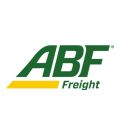
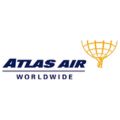

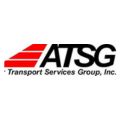
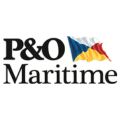
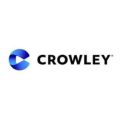
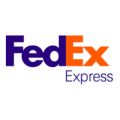
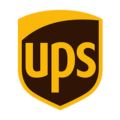
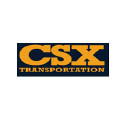
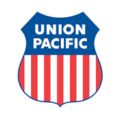
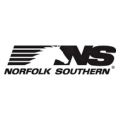



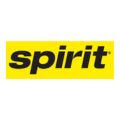

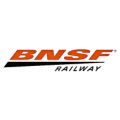



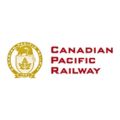

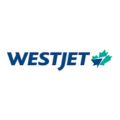
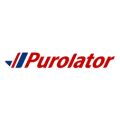
This resource page is for Other Material Analyzers
Below are other resources containing useful information on other material analyzers:
FAQs on Other Material Analyzers on GAOTek.com
How to Choose Other Material Analyzers
Components of Other Material Analyzers
Operation, Maintenance, and Calibration Other Material Analyzers
Customers in the U.S. and Canada of Other Material Analyzers
Applications of Other Material Analyzers in the Transportation Industry
Contact Us
Here are GAO Tek’s Other Material Analyzers
We ship overnight to anywhere in the continental U.S. and Canada from one of our local warehouses.
If you have any questions about our products or want to place an order, our technical experts can help you.
Please fill out this form or email us
